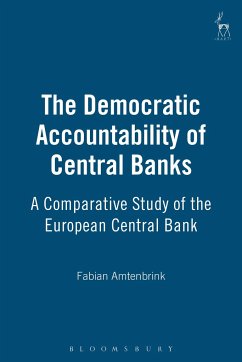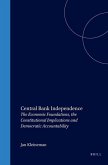The signing of the Treaty on European Union (TEU) propelled the Member States into the European Monetary Union (EMU) leading directly to the transfer of authority over monetary policy to the European System of Central Banks (ESCB),leaving Central Banks in the Member States to implement its decisions. This vital shift has led to calls for a fresh assessment of the independence status of the ECB. The question of central bank independence and its impact on economic performance has been extensively studied, but the equally important question of democratic accountability has been largely ignored. The study offers an explanation of what the concept means in the context of central banks, and suggests criteria by which the democratic accountability can be evaluated. The present system of democratic accountability in a number of central bank systems is scrutinized, and contrasted against possible future models for the ECB. The author asks whether and to what extent the ECB will be democratically accountable, to what extent reinforcement might be required, what influence will this have on monetary policy, and the extent to which existing democratic mechanisms in the Member States are likely to remain applicable. In the course of this study six national central bank systems are analysed, including the Bank of England, the Banque de France, the Deutsche Bundesbank, the Nederlandsche Bank, the Reserve Bank of New Zealand, and the Federal Reserve System (Fed), and the ESCB and ECB. Fabian Amtenbrink is a Lecturer in European and Economic Law, and an associate of the CRBS at the University of Groningen.
Hinweis: Dieser Artikel kann nur an eine deutsche Lieferadresse ausgeliefert werden.
Hinweis: Dieser Artikel kann nur an eine deutsche Lieferadresse ausgeliefert werden.








